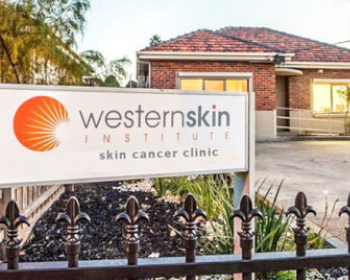The word “nocebo” comes from Latin which means “to harm”. In medicine, the term nocebo is used to describe the experiencing of side effects from a medication where no such side effect truly exists.
What are the studies on Nocebo?
In a study published in New England Journal of Medicine, the investigators in the United Kingdom assessed the side effect of a cholesterol lowering drug known as a statin. https://www.nejm.org/doi/full/10.1056/NEJMc2031173 Nearly 8 million people take this medication making it one of the most common drugs prescribed. However, up to a fifth of patients stopped them due to side effects such as muscle aches, feeling nauseous and joint pain.
In the study above, 60 patients were randomised and each patient received four bottles of atorvastatin 20mg, four bottles of placebo (pill with no active drug) and four empty bottles. Each bottle was used for a one-month period at a random sequence. Patients then rated their symptoms on a smartphone app.
90% of the symptoms were due to the nocebo effect. This meant that patients who were taking placebo were experiencing symptoms as much as patients who were taking the active drug.
What is the application to dermatology?
Isotretinoin (Oratane® or Roaccutane®)
Oral isotretinoin is a widely used drug in dermatology for acne and rosacea. The most common side effect is dry skin and dry lips. It is common for patients to explore the internet to access more information leading to a plethora of side effects. To assess this, the authors in a multicentric double-blinded trial assessed 573 patients with rosacea to receive oral isotretinoin, doxycycline, or placebo for 12 weeks.1 Interestingly, 17-30% of patients in the placebo group and 24% of patients in the doxycycline group also reported dryness of the skin and dryness of the lips even though these side effects are not possible.
Finasteride (Propecia®)
Finasteride is another example of a drug used in dermatology and urology with significant nocebo effects. Finasteride blocks conversion of testosterone to dihydrotestosterone (DHT). This drug has been used for years by urologists for benign prostatic hyperplasia and by dermatologists for male pattern hair loss. Sexual adverse effects of finasteride are often reported by patients. In a comprehensive review of 73 papers on medical therapies for benign prostatic hyperplasia, finasteride is infrequently associated with sexual adverse effects, with erectile dysfunction being the most common (4.9-15.8%) followed by ejaculatory problems (2.1-7.7%) and decreased libido (3.1-5.4%). 2
Libido is not only related to hormones such as testosterone but also to visual cues, the sense of touch, imagination and the sense of smell. Penile erection is mainly under the control of the nervous system and hormones play a very small role.
International Society of Hair Restoration Surgery (ISHRS) established a “Task Force on Finasteride Adverse Event Controversies” and their conclusions were:
“To date, there is no evidence-based data substantiating the link between finasteride and persistent sexual side effects in the numerous double blinded, placebo-controlled studies using finasteride 1mg for hair loss. Reports of persistent sexual side effects have come from a variety of sources, with some internet sites attracting individuals claiming to have sexual and psychological issues related to finasteride. While continued difficulty having erections after discontinuing finasteride has been reported in post-marketing surveillance the incidence of this problem remains unknown. This rare side effect is included in Merck’s patient product information in the United States, and in Public Assessment Reports of the Medicines and Health Regulatory Agency of the United Kingdom and the Medical Products Agency of Sweden.”
There has been renewed interest in the side effect of finasteride in view of recent reports in the media: https://www.reuters.com/article/us-merck-propecia-suicide-exclusive-idUKKBN2A32XU
It was noted that as early as 2009, Merck (the manufacturer of the drug) knew of more than 200 reports of depression, including suicidal thoughts, in men taking Propecia. However, the company decided there were too few reports of serious depression and suicidal behaviour and not enough specifics about those cases to warrant more than “routine” monitoring of safety data.
Whilst Merck should have published information about the above, the FDA (Food and Drug Administration) concluded in their own investigation that it “does not mean the drug caused the adverse event” and medical problems may stem from the “underlying disease being treated, caused by some other drug being taken concurrently, or occurred for other reasons.”
What can be done about it?
Some people are at higher risk of experiencing nocebo. Patients with anxiety or depression may be more pessimistic and are more influenced by their environment. The most important step is to acknowledge that nocebo exists. Thereafter, it is important to gain as much information about the medication in a realistic manner. Most medications in dermatology are well tolerated with severe side effects being rare. Your dermatologist is the best person to discuss the medication and its side effects with you as their experience is often grounded in science and complimented with real-world experience on the medication.
References:
Gollnick H, Blume-Peytavi U, Szabó EL, Meyer KG, Hauptmann P, Popp G, et al. Systemic isotretinoin in the treatment of rosacea-doxycycline- and placebo-controlled, randomized clinical study. J Dtsch Dermatol Ges 2010;8:505-15.
Carbone DJ Jr, Hodges S. Medical therapy for benign prostatic hyperplasia: Sexual dysfunction and impact on quality of life. Int J Impot Res 2003;15:299-306.





